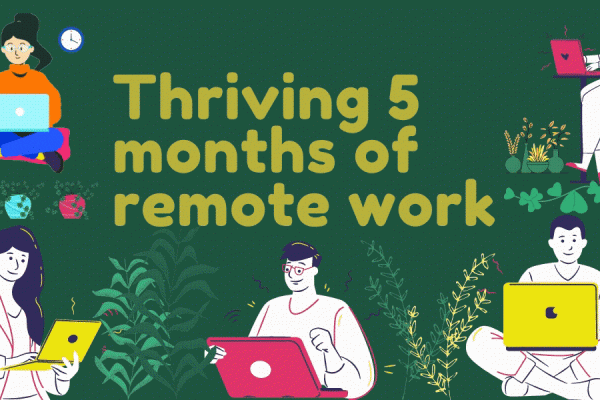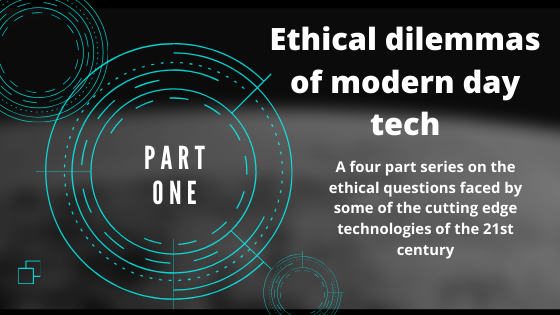I am not a big fan of dystopian novels( they almost always make me very angry). But I’ve always been impressed by the way they present historical events and draw parallels with current events. It’s like, the only kind of poetry I have been able to understand. Another common feature of these books, particularly of the Orwellian nightmare variety, is the highly advanced futuristic technology used by the totalitarian regime. From Telescreens in George Orwell’s 1984 to the genetically modified animals in the Hunger Games series by Suzanne Collins, in almost all of these stories, the technology is used to control the population and rarely to benefit them.
Technology has always had a rather mutually beneficial but unhealthy relationship with authoritarian regimes. Technology is a powerful tool for authoritarian regimes to control their population. Even before electronic media was mainstream, censorship laws have controlled the spread of information. The world has a long history of laws against sedition, treason, and blasphemy. And technology has been used for spreading propaganda and misinformation for the benefit of the ruling class. So historically, technology has been an advantage to whoever has it, and it has been used to spread a revolution as well as to suppress it. With technology that allows for quick transfer of information, revolutions, as well as their suppression, have become fast-paced. And companies have been trying to balance ethics and profit while supporting or opposing a movement.
In the second part of this series, we’re exploring the weird (and creepy) relation between tech and authoritarian regimes.
The Great Firewall of China
Take the case of China. China has a very highly censored form of Internet, with massive surveillance and content control system referred to as the Great Firewall of China. Besides standard-issue blocking of websites, Chinese platforms monitor individual internet users and block messages that are against the regime’s policies. And here the tech companies play a major role. Some of the top internet companies in the world, such as Tencent, Baidu, etc have profited massively and grown because of these laws. The companies developed extensive tools to censor content on their platform, allowing them to flourish in a market where foreign companies could not enter. WeChat, a WhatsApp equivalent in China, can censor messages send across the platform so fast that the recipient doesn’t even realize that a message has been sent.
It’s not just Chinese companies who are getting mesmerized by the massive user base of China. Google’s Project Dragonfly, an effort by Google to enter China, led to widespread criticism leading to its cancellation. The idea was to build a search engine that would work with China’s censorship laws and at one point had around 100 people working on it. The project was highly secretive in nature and created a huge backlash both inside and outside the company when it was exposed by Intercept. Even Apple could not withstand the pressure from Chinese authorities to remove VPN apps from AppStore, which were being used by Chinese nationals to bypass the Great Firewall.
Internet blocking for suppressing dissent is another issue that has recently been on the news. Governments across the world have blocked and taken down websites involving illicit drug sales and human trafficking many times. While such a move can save a lot of lives, bans on many other sites and content have sometimes raised concerns on free speech. Many countries in the Middle East have blocked access to websites, and services that provide VoIP calls (WhatsApp, Skype) have had a difficult relationship with these regimes. While tech-savvy users have overcome bans on websites with the use of VPNs, complete withdrawal of internet services has been a troubling development in recent times. Completely cutting off the internet has been a strategy in shutting down dissent since the time of Arab revolutions. The Indian government’s recent move to completely ban internet communications in Kashmir and other parts of India have received worldwide attention and have started discussions on whether an internet connection is a fundamental right or not. Recent tests by the Russian government to disconnect the country from the global internet as well as the higher number of internet blockades by governments in the past year has also contributed to the discussion.
Facial recognition technology: the not so good side of it
As facial recognition technology improves at a rapid pace, concerns over abuse have been building up, and not without reason. For example, in China, they have implemented a social credit system. The system takes into account the activities of individual citizens and categorizes them into a blacklist or a whitelist. They’re assigned a score based on which they may be denied access to services or may get special privileged access, such as lower wait times. While on the surface the system is described as something to improve the “trustworthiness” of the citizens, it is clear that the system will be used to bring down dissent. And the facial recognition system and artificial intelligence is a major part of this system, used to detect activities against the state. The whole thing is straight out of Person of Interest. So far it is reported that around 26.82 million air tickets and 5.96 million high-speed rail tickets have been denied. While the use of facial recognition systems may help prevent crimes and track criminals, the scope for abuse is high.
And apparently it is not just the Chinese government that uses facial recognition software. Law enforcement agencies across the US have been using facial recognition tech from Clearview AI. The company has developed its system by accessing data from social media accounts(without user permission, I have to add), YouTube and many other websites. And apparently the system can be paired to augmented reality glasses, allowing a user to identify just about anyone they see(eerily similar to tech used by China) and connect to their social media accounts. Facebook, YouTube, and Google have served cease and desist notice to Clearview, but apparently that is not stopping them. The potential for these systems to be abused is so high that companies with resources to build them such as Google refrained from doing so. And, the company is planning to sell the system across the world, even to countries that have a history of human rights abuses.
The problem with facial recognition is that, even though it can severely affect privacy, the convenience it offers is not easy to resist. And in an ideal scenario, it can make cities safe. For example, airports across the US recently implemented facial recognition to make it easy to check-in. But the system raised widespread concerns of privacy and the fact that the passengers were not informed well about the system as well as the option to opt-out didn’t help the case. San Francisco has banned its use by the transport authority or by law enforcement making it the first city to do so, citing infringement of privacy and the inaccuracy of the existing systems. Bangalore has rolled out facial recognition systems in railway stations and I’m not excited. While the system is aimed at preventing human trafficking, prevent crime and find missing children, I am not confident there are fail-safes to prevent abuse.
While the Western media decried the use of social credit in China, something else has been monitoring the activities of people. Companies have been profiling individuals based on their location, movies, and books they like, what they are planning to buy; all for profit. Sounds sinister? Yeah well, we have been offering this information to social media companies and search engines for years. Data is indeed the oil of the 21st century.
This is the second part of a series. Click here to read the next part Here’s the first part.




